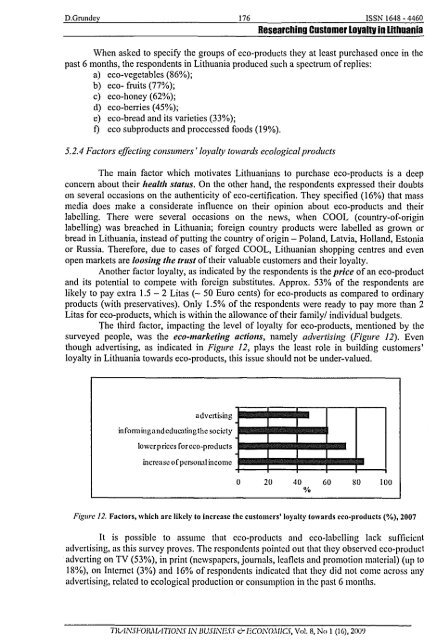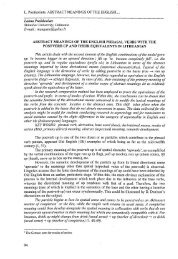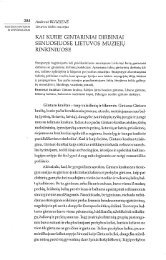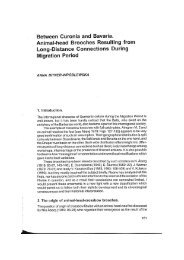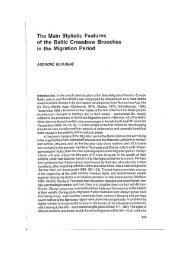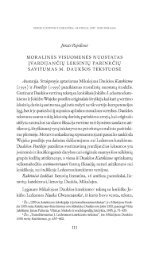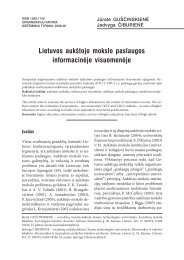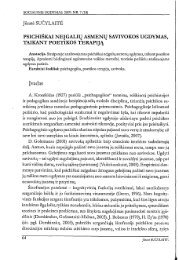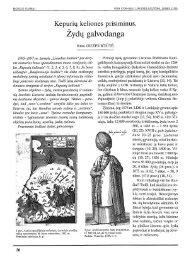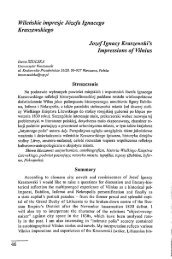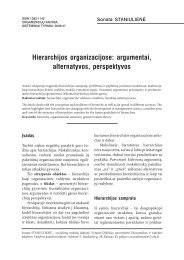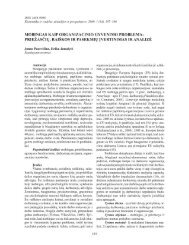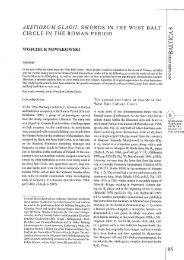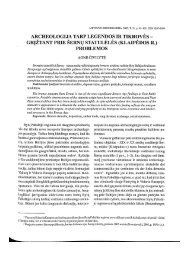ECO-MARKETING AND ECO-LABELLING: DOES IT ENSURE ...
ECO-MARKETING AND ECO-LABELLING: DOES IT ENSURE ...
ECO-MARKETING AND ECO-LABELLING: DOES IT ENSURE ...
You also want an ePaper? Increase the reach of your titles
YUMPU automatically turns print PDFs into web optimized ePapers that Google loves.
D.Grundey 176 ISSN 1648-4460<br />
Researching Customer Loyalty in Lithuania<br />
When asked to specify the groups of eco-products they at least purchased once in the<br />
past 6 months, the respondents in Lithuania produced such a spectrum of replies:<br />
a) eco-vegetables (86%);<br />
b)<br />
c)<br />
d)<br />
e)<br />
f)<br />
eco- fmits (77%);<br />
eco-honey (62%);<br />
eco-berries (45%);<br />
eco-bread and its varieties (33%);<br />
eco subproducts and proccessed foods (19%).<br />
5.2.4 Factors effecting consumers' loyalty towards ecological products<br />
The main factor which motivates Lithuanians to purchase eco-products is a deep<br />
concem about their health status. On the other hand, the respondents expressed their doubts<br />
on several occasions on the authenticity of eco-certification. They specified (16%) that mass<br />
media does make a considerate influence on their opinion about eco-products and their<br />
labelling. There were several occasions on the news, when COOL (country-of-origin<br />
labelling) was breached in Lithuania; foreign country products were labelled as grown or<br />
bread in Lithuania, instead of putting the country of origin - Poland, Latvia, Holland, Estonia<br />
or Russia. Therefore, due to cases of forged COOL, Lithuanian shopping centres and even<br />
open markets are loosing the trust of their valuable customers and their loyalty.<br />
Another factor loyalty, as indicated by the respondents is the price of an eco-product<br />
and its potential to compete with foreign substitutes. Approx. 53% of the respondents are<br />
likely to pay extra 1.5-2 Litas (~ 50 Euro cents) for eco-products as compared to ordinary<br />
products (with preservatives). Only 1.5%i of the respondents were ready to pay more than 2<br />
Litas for eco-products, which is within the allowance of their family/ individual budgets.<br />
The third factor, impacting the level of loyalty for eco-products, mentioned by the<br />
surveyed people, was the eco-marketing actions, namely advertising (Figure 12). Even<br />
though advertising, as indicated in Figure 12, plays the least role in building customers'<br />
loyalty in Lithuania towards eco-products, this issue should not be under-valued.<br />
advertising<br />
infonningandcducating the society<br />
lowcrpriccs forcco-products<br />
increase of persoiuil income<br />
20 40 60 80 100<br />
Figure 12. Factors, which are likely (o increase (he customers' loyalty towards cco-producls (%), 2007<br />
It is possible to assume that eco-products and cco-labclling lack sufficient<br />
adveriising, as this survey proves. The respondents pointed out that they observed eco-product<br />
adverting on TV (53%), in print (newspapers, journals, leaflets and promotion material) (up to<br />
18%), on Internet (3%) and 16% of respondents indicated that they did not come across any<br />
advertising, related to ecological production or consumption in the past 6 months.<br />
Tli^lNSFOimATlOm IN imiNrXS e> nCONOMlCS, Vol. 8, No 1 (16), 2009


